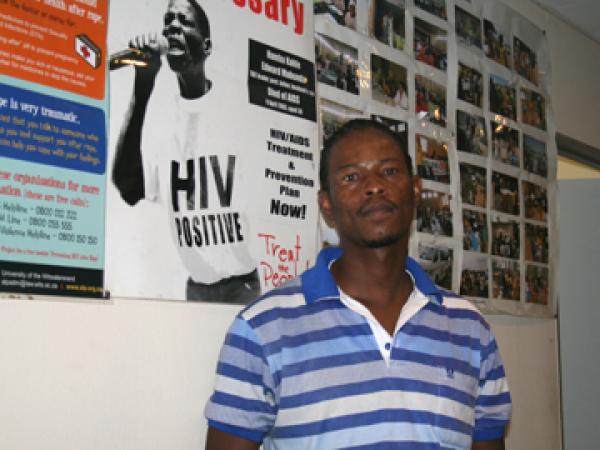AIDS medicine stockouts put thousands at risk

South Africa’s anti-retroviral (ARV) treatment programme is often hailed as one of the most important public health successes. It is the world’s largest ARV programme, with over two million patients initiated on treatment. But it has serious problems: many patients often go without medicines because of stockouts.
According to a report launched today by Stop Stock Outs, a consortium of civil society organisations, “one in five health facilities nationwide reported experiencing a stock out or shortage of ARV or TB medicines” in the two month period during which a survey by the organisation was undertaken.
The survey team, which collected the data for the report, made contact by telephone with 2,342 (61%) of 3,826 identified facilities. In the remainder of cases a telephone number for that facility was not obtainable, or the number called was unreachable. Of the facilities that were contacted, 91% (2,139) provided information. In the other 9% (203) of cases, the person answering the phone declined to participate.
The Free State was identified as the hardest hit province, with 54% of its 167 responding facilities reporting stockouts and shortages. The average duration of stockouts in the province was found to be 30 days.
The province’s Treatment Action Campaign (TAC) coordinator, Morake Mochobane, told how TAC activists “continuously receive stock out complaints”. He described how in Fouriesburg, some people have turned to an untested and implausible remedy — green and red pepper — in a desperate attempt to ward off developing HIV drug resistance. Many are turning to ‘alternative’ cures, trying to ensure their survival. He said that lamivudine (3TC) and nevirapine are the two drugs that he and his colleagues receive the most reports about. “Initiated patients often have their regimen changed, without being told why”, he said. “It is only when we, as TAC activists, intervene that we often find that it is due to stockouts being experienced in the facility.”
An HIV-positive woman, Francinah Chauke, said that she often found there was no treatment available at her clinic. “They told me that the medicines were out of stock. I went for two weeks without treatment. My CD4 count [measure of immune strength in HIV-positive people] has decreased and my [HIV] viral load is up. Five people from my support group have died in the past year … I am scared of developing resistance.” (Source: MSF)
“I am scared of developing resistance.”
Starting treatment and not adhering to the regimen can contribute to the development of HIV drug resistance. When drug resistance occurs, the ARVs a person is currently taking stop working. This results in fewer and more expensive treatment options for patients and puts an even greater burden on South Africa’s already overstretched public health system. Drug stockouts can undo the benefits of life-saving ARV treatment.
With over 70% of the country’s population dependent on the public health system, resolving the stockout problem is urgent.
Dr Francesca Conradie, President of the Southern African HIV Clinicians Society said, “The consequences and costs to the health system and patients can be grave. This includes the development of drug resistance, the risk of spreading resistant forms of HIV and TB, increased immunosuppression and increased risk of opportunistic infections. Stockouts threaten to undermine our messages of strict adherence to therapy.”
The Department of Health was not available to respond to questions from GroundUp.
A correction was made to this article. The original article and headline said that over 420,000 people were put at risk by ARV stockouts. This is overstating what the study found and we consequently modified the headline.
Support independent journalism
Donate using Payfast

Don't miss out on the latest news
We respect your privacy, and promise we won't spam you.
Next: Small Things: an extract from Nthikeng Mohlele’s latest novel
Previous: What’s it like to be gay or lesbian in Khayelitsha?

This article is licensed under a Creative Commons Attribution-NoDerivatives 4.0 International License.
